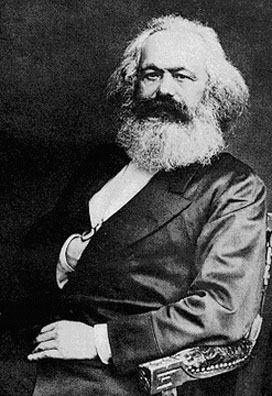Wednesday, November 17, 2010
Monday, October 04, 2010
Luke Historians--The Past Is The Key To The Present
lukehistorians.com
Luke Historians is a project inspired by one of the fascinating anomalies of Scripture: a scientific Greek who wrote two books of the Bible.
Luke Historians is a website dedicated to trumping convention in two ways:
Our society governs by the doctrine that "the present is the key to the past," which was originally supposed to apply to only the scientific concept of uniformitarianism. But how often is the past viewed through the lens of the present throughout all culture? We must instead investigate the past to interpret the successes and failures of the present.
The Past is the Key to the Present. The Bible is necessarily respected in academic circles as the single most influential text in Western Civilization. But fundamental misunderstandings about this remarkable book exist because the Greek and Hebrew minds clash. Most residents of the Western World descend from the Greek (or Gentile) heritage of thought and thus have difficulty understanding the historical and prophetic narrative of the Hebrew Bible.
That is why Luke is a great starting point for common ground debate, because Luke himself was a Greek taking part in a very Hebrew happening. Luke Historians is intended to be a haven for all the nerdy Christians, Skeptics and any others interested in solving the Bible and its role in history to crawl out of their various gang slums on the internet and meet for intelligent problem-solving. A Meeting of the Greek and Hebrew Minds.
Sunday, October 03, 2010
Maher's Monkey Business: Academic Travesty and Religulous Obsession with O'Donnell

As science is increasingly politicized in the Delaware senate race, viewers have to wonder – what is a Darwinian skeptic, and is it safe to have one in Congress?
Last week, Bill Maher didn’t unearth an archived youthful indiscretion to make Christine O’Donnell the laughingstock of her critics. Rather, he insulted not only O’Donnell, but an untold number of citizens who question the scientific status quo.
“Evolution is a myth, and Darwin himself -” O’Donnell began to explain before being interrupted by Maher in a clip from 1998. “Evolution is a myth? Have you ever looked at a monkey?” was Maher’s comic rebuttal. We can cut him some slack since he was, after all, the comedian on the stage. But otherwise, a Creationist might as well attempt to refute an evolutionist by saying, “Creation is a myth? Have you ever looked at a DNA molecule?” It would be interesting to see which visual experience makes the more compelling argument.
I would probably be on Maher’s side in this argument if the people who had doubts about Evolution were only a bunch of backwoods hicks who had never seen a microscope before. But that in itself is a myth, because that simply isn’t the case. There are very serious, highly educated scientists that have realized certain facts in the natural world are not adding up in favor of the Darwinian tradition. Not all of them are Creationists, or even religious at all.
Contrary to the average media slant, it actually isn’t religion that is criticizing Darwin. Many dapper theologians have happily merged their belief in the Bible with belief in Evolution, and however soaring or sappy the result may be, it has earned them the highest approval rating Richard Dawkins can muster for a religion: Harmless. A serious Darwinian doubter is a different sort of person entirely – a seeker who looks beyond religious and professional boundaries.
Maher enjoys perpetuating the misconception that denial of Evolution is directly linked to unintelligence. It actually has nothing to do with basic intelligence. My Ivy League educated father has been disbelieving Darwinian evolution for decades - even while he would regularly take my siblings and me to the American Museum of Natural History and the Bronx Zoo.
It is also a misnomer to automatically label a person as “anti-science” just because he or she disbelieves the Darwinian extrapolation of macroevolution. All a Darwinian skeptic wants is every last iota of data spread upon the dissection table – no secrets, no cover-ups, no manipulation. Come to think of it, we could use a good dose of that mindset in Congress!
Even if Christine O’Donnell once confused carbon dating with potassium-argon dating (an unsurprising layperson’s mistake), at least she showed enough interest in the subject to investigate beyond the status quo. The awareness and consideration of more than one informed opinion is an appealing feature in a senatorial candidate.
O’Donnell said quizzically on Maher’s show, “Then why aren’t monkeys still evolving into humans?” However hastily formed that question may be, the “time did it!” sort of answer she was given was just as inadequate. A common atheist argument I’ve come across claims, “I looked up in the sky today and didn’t see God, and therefore He doesn’t exist.” That sounds remarkably naïve in my opinion, but Maher would probably consider it brilliant. Evolutionists say we can’t directly observe the macroevolution process, and Creationists say we can’t directly observe God, yet both say the handiwork of each is evident. That leaves us fairly even.
An atheist claims to not see enough evidence for God’s existence, and a non-Darwinist claims to not see enough evidence for the Darwinian concept of macroevolution. For some inhuman reason, the act of not being convinced is upheld as brilliant in the former case, but considered brain dead in the latter case. That is an academic tragedy.
History education is rife with reinterpretation of solid artifacts and writings made by people of the past. Even President Obama twice omitted “Creator” within one week when referencing the famous statement inscribed in the Declaration of Independence that people are “endowed by their Creator with certain unalienable rights.” Ironically, that Creator-acknowledging statement was written by Thomas Jefferson, atheists’ favorite and most exploited Founding Father.
Perpetual attempts to seize the red pen and infuse new controversies into established pages of history and literature is bewildering, but nevertheless welcomed. Yet the one field that actually thrives most off of new observation and ideas – science – is the one subject where thinking outside of the politically correct box is forbidden. Why?
Many fail to understand or share my convictions about academic freedom. This frustrated me deeply until it dawned on me recently: How could they understand when so few have experienced the level of educational independence that I have had?
I come from an academic family. My grandfather studied botany at Cornell, and later became President of the University of Alabama. He also personally knows evolutionary biologist E.O. Wilson. I was raised in a household with shelves full of materials by both Evolutionists and Creationists. My bedroom and schoolroom were occupied by National Geographic and Scientific American issues way before Answers magazine was in print. Henry M. Morris’ The Genesis Record resides in the family library along with an astronomy book that claims to recite the universe’s first three minutes of existence after the Big Bang.
My high school science textbooks were very committed to the scientific method, offering differing hypotheses and theories next to the currently known data of every major topic. One of the greatest impressions left on me from that curriculum was the way the text candidly admitted that science is such an expanding field that many things I learned in it might be outdated in a few years. By the way, those high school textbooks were written by a scientist who believes the Earth is young not for theological reasons, but solely because he thinks the data we have today shows strong evidence for a young Earth.
When I began taking science classes at a state university, I experienced academic confinement for the first time in my life. The college textbooks that I was issued said the very same things my high school textbooks said in the beginning - that science can never ultimately prove anything, that the ability to be disproved through test or observation is key to a good scientific theory, and that the textbook would mention disagreements among scientists and where intriguing questions remain in the field. Though I thoroughly enjoyed the subject I was studying, I was disappointed - yet not surprised - that the college textbook failed to keep its promises.
The increasingly politicized nature of the science debate is highlighted in this Delaware election. Democratic candidate Chris Coons cast in a negative light O’Donnell’s supposed desire to see public schools teach Creationism. To be honest, this characterization is a rather pointless diversion in the debate over science education.
There is no need for science classes to open with a narrative of the universe being brought into existence, such as what is found in Genesis. Historical documentation belongs in history class. Science education should consist of instruction in the scientific method and observation of data. If schools would even teach Darwinian evolution in its entirety - facts and failures, warts and all - we would possibly see a vastly more independent electorate infused with new enthusiasm for inquiring about the natural world.
Would there not be outrage if every political science and economics class forced students to study the system and predictions of only capitalism or only socialism instead of both? Would there not be suspicion of an elitist agenda at play if such were the case and no criticism of the predominant theory was allowed? Why, therefore, is this very thing happening in the field that is supposed to be the most open minded and expansive of all - science?
If you can’t take criticism of your ideas, then you do not need to be working in science or government. Perhaps there is a comfortable, mindless religion out there that will suit you well instead.
-----
http://communities.washingtontimes.com/neighborhood/not-your-average-read/2010/oct/2/mahers-monkey-religulous-academic-travesty/
Saturday, October 02, 2010
The War On Absolute Truth



BY Theodore Shoebat
“There are no moral absolutes,” the foolish told the wise.
“Are you absolutely sure?” replied the wise.
Marriage being only “between a man and a woman” is an absolute. It can never be between a man and a horse or a tree, or between the sun and the moon, a mare and a stallion, chicken and rooster or rooster with rooster.
But the attack on Proposition 8 has nothing to do with the left’s love for homosexuals and everything to do with eroding the absolutes set in our Constitution. Altering the U.S Constitution is the only way for socialism to prevail in the U.S. Socialists like Elena Kagan plays with the First amendment, attacking that moral absolute and said to redefine it as depending “upon a categorical balancing of the value of the speech against its societal costs.”
These “societal costs”, spell socialism and nothing more. History tells us that by altering “absolutes” the Left replaced individualism (which works) with collectivism (which doesn’t).
Perhaps a little history can help us understand the likes of Kagan and Judge Vaughn Walker overturning Prop 8. Collectivism stems from positivism–founded by French philosopher Auguste Comte (19th century).
Positivism says that human experience is the supreme criterion of human knowledge, denies the existence of a personal God and takes humanity, “the great being”, as the object of its veneration in order to elevate man over God. Comte’s positivism was derived from Henri de Saint-Simon, a utopian ideologue who was the influence to none other then Karl Marx’s socialism.
In his Essay on the Science of Man (1813) Saint-Simon explained that every field of knowledge moved successively from a conjectural to a “positive” stage, and that the sciences reached this stage in a definite order, Physiology had now moved into a positive stage, just as astrology, and alchemy had previously given way to astronomy and chemistry. Now the science of man must move towards the positive stage and completely reorganize all human institutions. (1)
Aguste Comte perpetuated the search for a science of society through a three-stage theory of progress, which he derived from Saint-Simon in 1822. Thus the idea that truth is not absolute but historical became popularized during the nineteenth-century and is realized not in “individual thought” but in “social action” collectively.
It was Saint-Simon’s followers in the 1830s that first gave widespread use not only to the word “socialism,” but also—”socialize,” “socialization,” and socializing the interments of labor. (2) Comte’s influence by Saint-Simon explains why he rejected divine human rights: “Social positivism only accepts duties, for all and towards all…Any human right is therefore as absurd and immoral. Since there are no divine rights anymore, this concept must therefore disappear completely…” (3)
Later, positivism would now submerge itself with the coming of Darwinian evolution. And since mankind evolves, morality must also evolve with it, and instead of all men are created equal we have Charles’s Darwin’s doctrine: “Any animal whatever, endowed with well-marked social instincts, would inevitably acquire a moral sense or conscience, as soon as its intellectual powers had become as well developed…as in man.”
It was evolutionist Herbert Spencer who first coined the phrase “Survival of the fittest” that intended to link darwinism and positivism together. Spencer believed that because human nature can improve and change, then, scientific‚ including moral and political views must change with it, that ethics “have to be considered as parts of the phenomena of life at large. We have to deal with man as a product of evolution, with society as a product of evolution, and with moral phenomena as products of evolution.” (4)
Thus, Spencer believed in the redefining of nations’ constitutions: “All evil results from the non-adaptation of constitution to conditions. This is true of everything that lives.”(5)
The final point in evolution according to Spencer was to see a progression to “perfect man in the perfect society.” Positivism quickly sprung on its way to America, a land whose constitution is disdained and in need of an altercation. Under positivism, judges were to guide both the evolution of law and the Constitution. By these, the views of the Founding Fathers are hampering the progressing evolution of society.
But if darwinian evolution is a science as claimed, why does it always have to leap onto ethics and morality?
CLICK HERE TO READ THE REST AT LUKE HISTORIANS
Saturday, September 18, 2010
Monday, September 13, 2010
Remember Fort Hood!
Reclaiming America at Fort Hood. America had enough of diversity, liberalism, appeasement, and silence. Diversity starts with the truth.
The event will take place in November 21st 2010 at Killeen Texas at the Killeen Conference Center.
Speakers will be Walid Shoebat, with decorated war hero General William Boykin, Kamal Saleem, and Robert Spencer.
For tickets got to FFMU.ORG or call at 877-832-7200
Monday, May 31, 2010
Subscribe to:
Posts (Atom)












